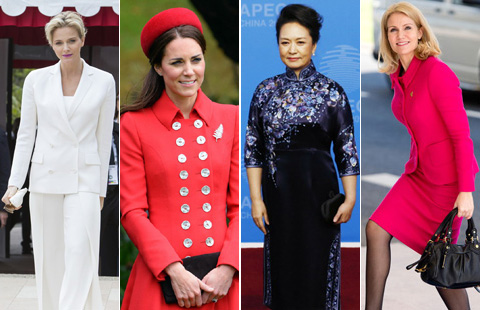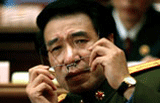Confucius Institutes defended after US debate
Updated: 2014-12-08 07:41
By Agencies(China Daily USA)
|
||||||||
China defended its overseas Confucius Institute programs on Friday after new questions were raised in the United States about their transparency and effect on academic freedom.
Confucius Institutes around the world are established by universities voluntarily, China said, and such centers promote Chinese-language learning and academic and cultural exchanges.
On Thursday, the US House Committee on Foreign Affairs held a hearing into whether academic freedom is threatened by China's influence on US universities, with the Confucius Institute receiving particular attention.
Foreign Ministry spokeswoman Hua Chunying said US universities applied voluntarily for all Confucius Institutes in the United States.
"All class and cultural activities are open and transparent. The Chinese side has provided teachers and teaching materials assistance as requested by the US side. It has never interfered with academic freedom," Hua told a daily news briefing.
"We hope everybody will make joint efforts to reject prejudice and work together to better build these bridges of friendship and make them stronger."
At the hearing in Washington, DC, congressman Chris Smith said he will ask the Government Accountability Office to review agreements for satellite campuses for US universities in China and for Confucius Institutes in the United States.
The New Jersey Republican, who also co-chairs the Congressional-Executive Committee on China, asked, "Is American higher education for sale?

"And if so, are US colleges and universities undermining the principle of academic freedom - and in the process their credibility - in exchange for China's education dollars?"
The University of Chicago, which has had a Confucius Institute since 2009, said in September that it was suspending talks on a renewal of the center's contract.
Days later, Pennsylvania State University said it would close its Confucius Institute by the end of the year. Canada's McMaster University, the University of Sherbrooke in Quebec and the Toronto District School Board have made similar decisions.
Proponents of the centers argue that they give increasingly cash-strapped educational institutions a way to provide students with valuable Chinese-language and cultural instruction.
In recent years, many foreign universities have formed partnerships with China in an effort to improve access to the country's huge educational market.
Reuters - AFP

 Prince William and Kate arrive on first trip to NYC
Prince William and Kate arrive on first trip to NYC
 Female VIPs steal the spotlight in 2014
Female VIPs steal the spotlight in 2014
 Later arrival of rime still an attraction in Jilin
Later arrival of rime still an attraction in Jilin
 'Big' Peking opera staged in New York
'Big' Peking opera staged in New York
 China, Brazil pledge to promote science, technology co-op
China, Brazil pledge to promote science, technology co-op
 ZTE, NBA team partners in business, charity
ZTE, NBA team partners in business, charity
 250 Santas hit slopes for charity
250 Santas hit slopes for charity
 Jack Ma awarded Honorary Chairman of Zhejiang Chamber of Commerce
Jack Ma awarded Honorary Chairman of Zhejiang Chamber of Commerce
Most Viewed
Editor's Picks

|

|

|

|

|

|
Today's Top News
American Wild West hits China
Confucius Institutes defended after US debate
Illinois university signs agreements with Chinese college
ZTE, NBA team partner in business, charity
Chinese investors in Brazil told to avoid risks
Economists call for increased public spending in China
Xiaomi's smartphone taps into US market
Peruvian product hit in Chinese market
US Weekly

|

|







